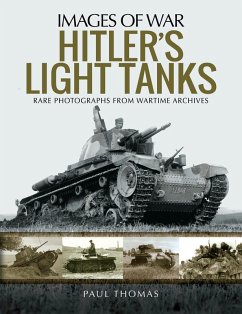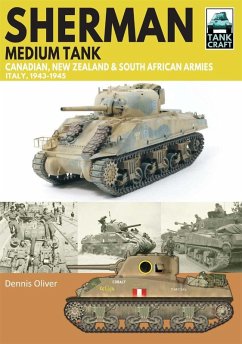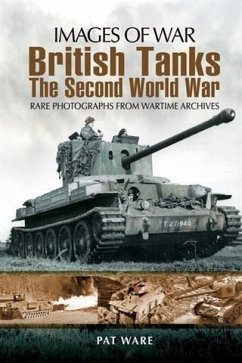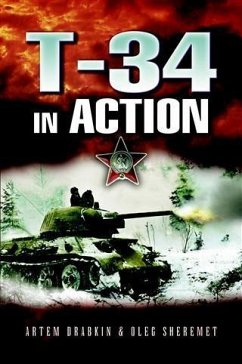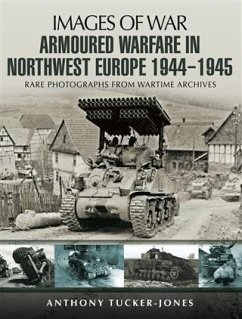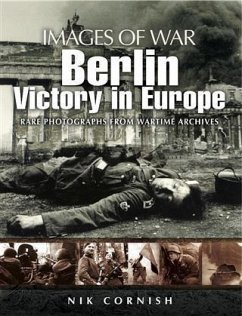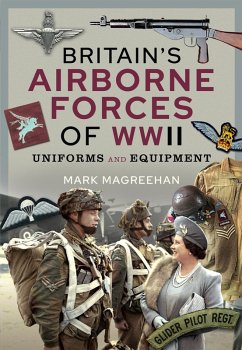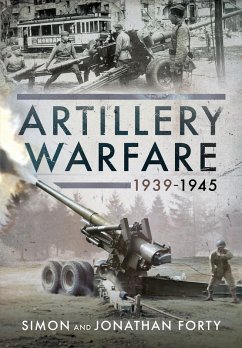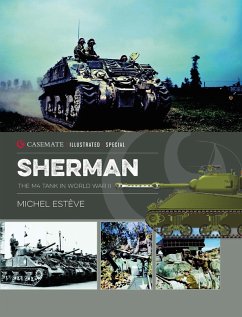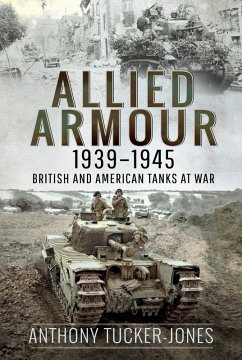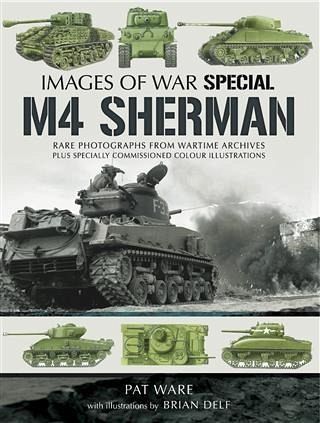
M4 Sherman (eBook, ePUB)
Versandkostenfrei!
Sofort per Download lieferbar
8,95 €
inkl. MwSt.
Weitere Ausgaben:

PAYBACK Punkte
4 °P sammeln!
This pictorial history of the legendary American tank combines color photographs, commissioned illustrations and authoritative information. The M4 Sherman was one of the most famous tanks of the Second World War. Produced in greater numbers than any other Allied tank, it fought on every front, and continued to serve as a front-line fighting vehicle in the Korean War, the Arab-Israeli wars, and the Indo-Pakistani wars. This detailed history of the Sherman covers its design and development, its technical specifications, the many variants that were produced, and its operational role in conflicts...
This pictorial history of the legendary American tank combines color photographs, commissioned illustrations and authoritative information.
The M4 Sherman was one of the most famous tanks of the Second World War. Produced in greater numbers than any other Allied tank, it fought on every front, and continued to serve as a front-line fighting vehicle in the Korean War, the Arab-Israeli wars, and the Indo-Pakistani wars. This detailed history of the Sherman covers its design and development, its technical specifications, the many variants that were produced, and its operational role in conflicts across the world. While the Sherman outclassed the older German tanks it encountered when it first went into combat in 1942, it was vulnerable to the later German medium and heavy tanks such as the Panther, Tiger I, and Tiger II. Yet the Sherman was ultimately more effective than these superior German tanks because it was reliable, durable, cheaper to build, and extremely adaptable. The Sherman was converted into a tank-destroyer, an amphibious tank, a recovery vehicle, a mine-flail, a personnel carrier-and, after the Second World War, it was developed to confront more modern tanks in combat. Pat Ware's expert account of this remarkable fighting vehicle is accompanied by a series of color plates showing the main variants of the design as well as common ancillary equipment and unit markings. This is an essential reference work for World War II buffs and armored warfare enthusiasts.
The M4 Sherman was one of the most famous tanks of the Second World War. Produced in greater numbers than any other Allied tank, it fought on every front, and continued to serve as a front-line fighting vehicle in the Korean War, the Arab-Israeli wars, and the Indo-Pakistani wars. This detailed history of the Sherman covers its design and development, its technical specifications, the many variants that were produced, and its operational role in conflicts across the world. While the Sherman outclassed the older German tanks it encountered when it first went into combat in 1942, it was vulnerable to the later German medium and heavy tanks such as the Panther, Tiger I, and Tiger II. Yet the Sherman was ultimately more effective than these superior German tanks because it was reliable, durable, cheaper to build, and extremely adaptable. The Sherman was converted into a tank-destroyer, an amphibious tank, a recovery vehicle, a mine-flail, a personnel carrier-and, after the Second World War, it was developed to confront more modern tanks in combat. Pat Ware's expert account of this remarkable fighting vehicle is accompanied by a series of color plates showing the main variants of the design as well as common ancillary equipment and unit markings. This is an essential reference work for World War II buffs and armored warfare enthusiasts.
Dieser Download kann aus rechtlichen Gründen nur mit Rechnungsadresse in A, B, BG, CY, CZ, D, DK, EW, E, FIN, F, GR, HR, H, IRL, I, LT, L, LR, M, NL, PL, P, R, S, SLO, SK ausgeliefert werden.




